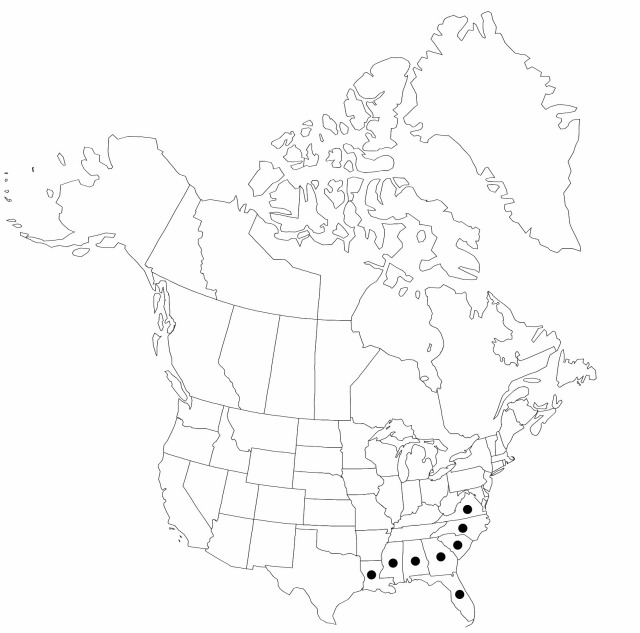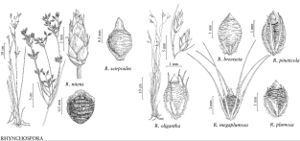Rhynchospora breviseta
Rhodora 58: 336. 1956.
Plants perennial, densely cespitose, knottybased, 20–40 cm; rhizomes absent. Culms leafy at base, filiform, wiry. Leaves: blades filiform, nearly reaching inflorescence tip or much shorter, to 0.3 mm thick, apex tapering. Inflorescences: spikelet clusters mostly 2–6, simple or reduced to 1 spikelet, often with 2 capillary branches, one divaricate or reflexed, 1 ascending; leafy bracts single per cluster, filiform, setaceous, with clusters appearing lateral to bracts. Spikelets pale redbrown, ellipsoidlanceoloid, 5–6(–8) mm, apex acute to acuminate; fertile scales narrowly ovate, 3–5(–6) mm, apex acute, midrib included or shortexcurrent. Flowers: perianth bristles 6, not reaching past fruit midbody, stubby, plumose to near tip. Fruits 3–8 per spikelet, 2–2.5 mm; body light brown to brown, ellipsoid-obovoid, tumidly lenticular, 1.5–2 × 1.6–1.7 mm; surfaces faintly, interruptedly crossrugulose, apically indented under tubercle; tubercle lowconic, 0.5 mm, base flaring, circular.
Phenology: Fruiting spring–summer.
Habitat: Moist to wet sands or peats of bogs, depressions in savannas, open pinelands, pond shores
Elevation: 0–200 m
Distribution

Ala., Fla., Ga., La., Miss., N.C., S.C., Va., West Indies.
Discussion
Rhynchospora breviseta is sympatric with R. oligantha over much of its range; intergrades have not been seen.
Selected References
None.
